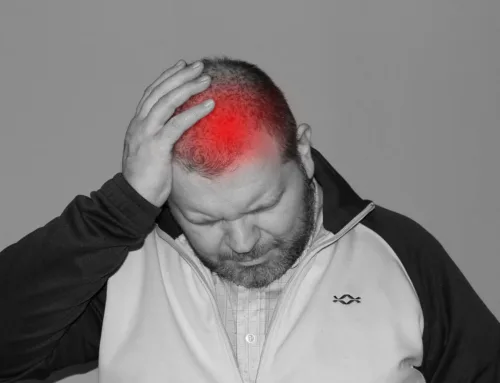Almost all of us have experienced headache pain throughout our lives. Most minor headaches will resolve on their own or can be relieved by taking over-the-counter medications. A typical headache can last from a few minutes to several hours and is usually not a sign of something more serious. However, some types of headaches can be a symptom of a more serious condition, such as a stroke, brain aneurysm, meningitis or encephalitis. Although these conditions are rare, it is important to know when your headache needs urgent care.
When should you seek emergency treatment for your headache?
Some types of headaches indicate life-threatening underlying conditions. Here is how to know when you should seek immediate medical attention for your headache:
- Sudden and severe headache
If you suddenly feel hit with a severe headache that you have never experienced before, you may be experiencing a “thunderclap headache.” This is a severe headache with a dramatic onset, with pain reaching its peak within 60 seconds. Sometimes, this type of headache can also be accompanied by nausea and vomiting. If you experience a thunderclap headache, is important to seek emergency medical attention, as this type of headache often indicates a potentially life-threatening condition, including bleeding in and around the brain.
- Headache with neurological or flu-like symptoms
When you do not actually have the flu, but experience flu-like symptoms with a headache, they could be indicative of serious medical conditions such as stroke or meningitis. Both of these conditions are life-threatening and require urgent treatment. Seek emergency care if your headache is accompanied by the following signs and symptoms:
- Fever
- Dizziness
- Double vision
- Nausea and vomiting (if you do not have the flu)
- Stiff neck
- Paralysis on one side of the body
- Trouble speaking or walking
- Weakness, numbness or paralysis on one side of the body
- Headache lasting for days
Sometimes, headaches and migraines can last for days. However, headaches that span days and even weeks and do not respond to medication can also be indicative of serious underlying health conditions. If you experience a severe and long-lasting headache that you are unable to relieve with over-the-counter or prescription medication, you should seek emergency care.
- Headache with unusual symptoms
If you occasionally get headaches, you already probably know your own personal headache symptoms and symptoms that are not normal for you. You should seek immediate medical attention if you experience any new strange or extreme headache or migraine symptoms, including:
- Changes in personality and mental function
- Headaches after suffering a head injury
- Headaches with the first onset after 50 years of age
- Headaches triggered by coughing
- New pattern of headache attacks
When should you schedule a doctor’s appointment for your headache?
The following symptoms do not require urgent medical care, but you should still get them checked out by a medical professional:
- Headaches that interfere with your daily activities
If you suffer from recurring headaches or migraines that interfere with your daily tasks and affect your quality of life, you should address this issue with your health practitioner. You can work together with your doctor to help you find the headache or migraine treatment that works best for you. Over-the-counter or prescription medications can be used to manage headache and migraine symptoms.
- Headaches that do not improve with medication
If you are already taking medication for your recurrent headaches or migraines, and your headaches no longer improve after you take the medication, you should seek medical treatment. It is important to keep in mind that headache medication overuse can cause rebound, medication-induced headache, and it is important to avoid exceeding recommended daily dosages.
- Frequent headaches
If you previously suffered from occasional headaches but now find that your headaches have increased in frequency, it is time to consult your doctor. Experiencing more than three headaches a week warrants a trip to the doctor’s office for a checkup, especially if you find yourself having to take pain medication more than twice a week.
Conclusion
If your headache is more severe than usual or comes with new and strange symptoms, it could be indicative of serious underlying health conditions, such as brain aneurysm, a tumour or stroke. Fortunately, such conditions are very rare, but it is important to know their potential warning signs. If your headaches interfere with your quality of life and you find yourself cancelling plans because of them, it is also important to talk to your doctor to find the best treatment solution for you.













